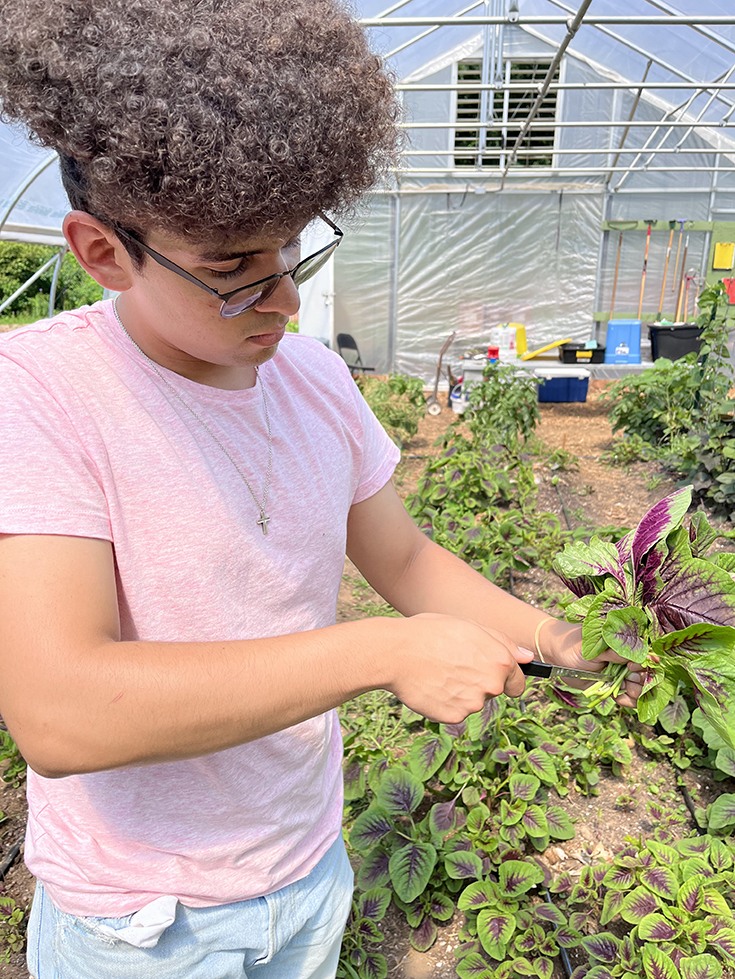PROVIDENCE, R.I. [Brown University] — On his second day as a summer intern at the African Alliance of Rhode Island, a colleague asked Michael Ochoa to harvest vegetables at the organization’s Bami Farm. The six-acre agricultural plot in Johnston, R.I., is one of seven community gardens operated by AARI to bring locally grown, affordable produce to communities where fresh foods are harder to access.
“I was trying to pick a cucumber, and I accidentally grabbed an unripe zucchini,” said Ochoa, a rising Brown University sophomore concentrating in international and public affairs. “I also couldn't find the lettuce, which shows how unfamiliar I was with this kind of work.”
Every Friday, Ochoa pressed on, learning from farmers how to identify crops, assess ripeness, pick and handle plants with care, and prepare the produce for deliveries to the Urban Greens Co-op Market, a natural foods market in Providence’s West End.
Ochoa said the internship, organized through the Swearer Center's iProv fellowship program, which connects Brown undergraduates with full-time summer work experiences in partnership with Providence-based nonprofits each year, exposed him to new world of food insecurity, advocacy and systems.
AARI connects Rhode Islanders of African descent with community programming focused on health, food, education and culture. The nonprofit started in 2004, converting vacant lots in South Providence into urban community gardens to connect African immigrants and refugees settling in the area with the opportunity to grow vegetables that could help feed their families. The operation successfully grew to produce enough crops to allow some participants to earn an income working as independent farmers. Today, roughly a dozen AARI farmers are selling vegetables while introducing foods specific to different African cultures at neighborhood shops and traveling or "pop-up" farmers markets led by the organization.

